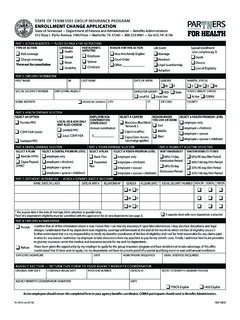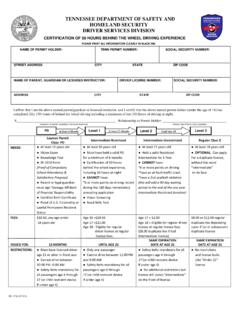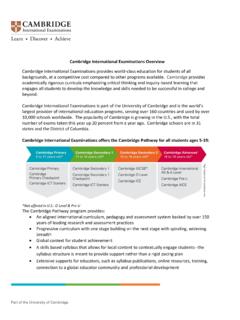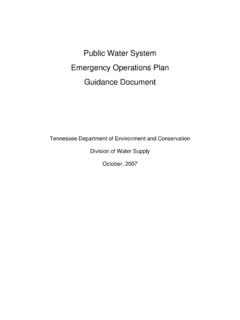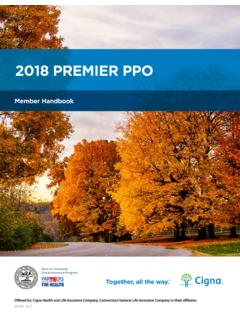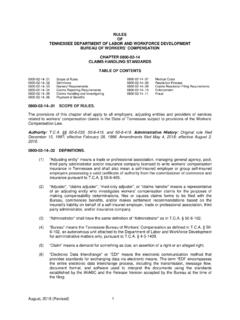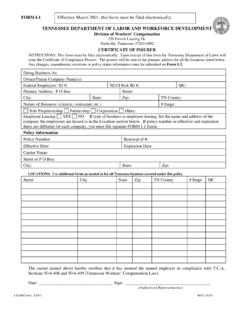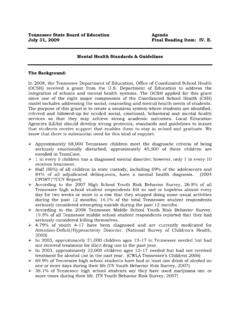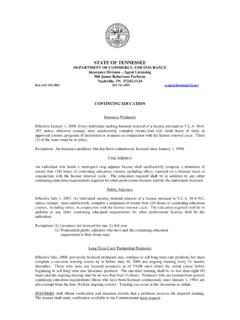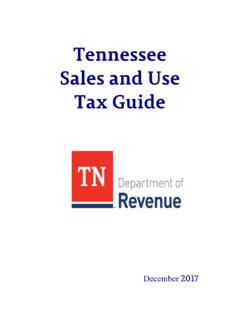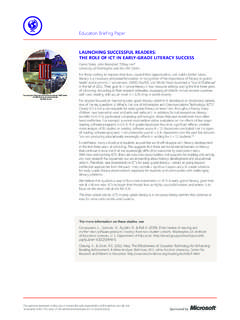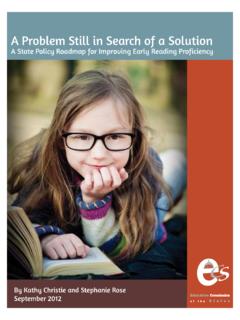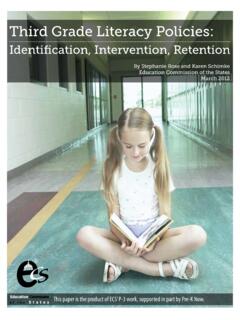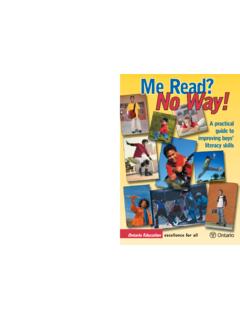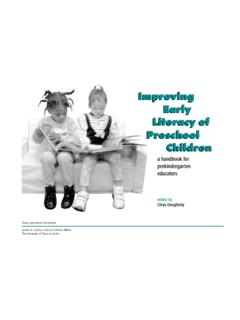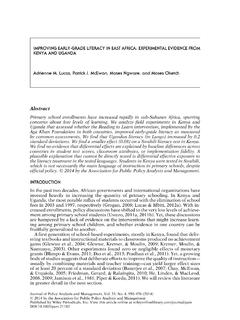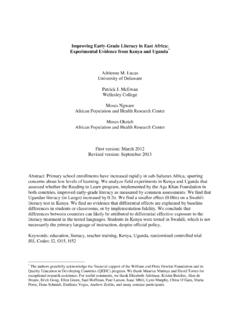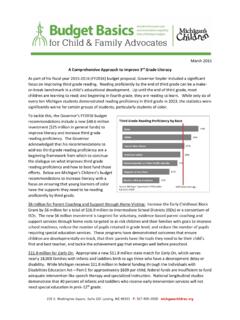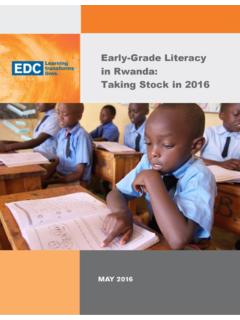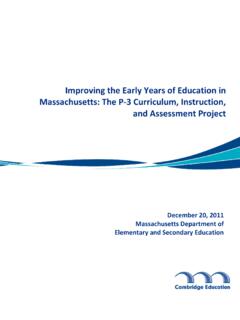Transcription of Implementing Unit Starters to Improve Student Literacy
1 Implementing Unit Starters to Improve Student Literacy Teacher Leaders: Taking Action in early Foundations and LiteracyMay 2018 ---Introduction The research is clear: Reading profciently prepares students for lifelong success. Research shows the importance of students reading profciently by third Unfortunately, Tennessee students have fallen behind their peers across the nation in reading. We have, however, successfully closed the honesty gap between what we see on our state test and what the National Assessment for Educational Progress (NAEP) indicates. In 2017, for the first time, our NAEP results and TNReady results showed the same results for Tennessee students.
2 While our TNReady scores are a more accurate measure of how our students are performing, over the past several years, our results in reading have remained stagnant and, in some cases, have declined. In 2017, TNReady results indicate 37 percent of fourth grade students had mastered or were on track to master English language arts. We saw similar results on NAEP, where only one-third of fourth graders were reading on grade level in 2017. These data ultimately show that the majority of Tennessee students are not as prepared as they need to be for the next school year and are not yet on track with the knowledge and skills to embark on their chosen path in life.
3 Addressing this challenge requires a focused, collective effort among state, district, school and classroom leaders. The good news is that, since 2011, Tennessee is one of the fastest improving states in the country. We are making progress. FIGURE 1 Student PERFORMANCE IN STANDARDIZED TESTS 100% 80% 60% 40% 20% 0% 91% 28% 25% 91% 37% 33% 41% 36% in 2016-17 mirrors the level of readiness demonstrated by Tennessee students on national tests. Student performance on TNReady TCAP TN READY NATIONAL ASSESSMENT OF EDUCATIONAL PROGRESS (NAEP) READINGMATHREADINGMATH2007 ACHIEVEMENT GRADES 3-8 2017 ACHIEVEMENT grade 4 1 Hernandez, D. J. (2011). Double Jeopardy: How Third- grade Reading Skills and Poverty Influence High School Graduation.
4 Annie E. Casey Foundation. Feister, L. (2010). early warning! Why reading by the end of third grade matters. Baltimore, MD: Annie E. Casey Foundation. Teacher Leaders: Taking Action in early Foundations and Literacy 22 ENDURING UNDERSTANDING($} AND ESSENTIAL QUESTIONS TEXT SELECTION END OF UNIT TASKS LESSON SEQUENCE In Tennessee, supporting high-quality Literacy instruction is a central priority. In 2015, the Tennessee Department of Education launched Tennessee Succeeds, a five-year strategic plan. A cornerstone of Tennessee Succeeds is the Read to be Ready campaign, a statewide initiative (launched in 2016 by Governor and First Lady Haslam and Commissioner McQueen) that is designed to move at least 75 percent of Tennessee third graders to reading proficiency by 2025.)
5 The Read to be Ready campaign is grounded in the following five philosophies: early Literacy matters: early language and Literacy development must begin at birth because of its direct impact on later success in reading and in life. But it s never too late: With quality resources and support, even those who are not reading on grade level by third grade can catch up. Reading is more than sounding out words: In addition to the application of foundational skills, reading involves thinking deeply about a text s meaning and how it builds knowledge of the world around us. Teacher knowledge and practice are critical: Educators must have a deep understanding of the art and science of Literacy instruction to develop lifelong learners.
6 It takes a community: We each hold a piece of the puzzle, and we must do our part to Improve Literacy in Tennessee. In May 2017, the department released Teaching Literacy in Tennessee (TLiT). This document outlines the types of opportunities necessary for students to become proficient readers, writers, and thinkers and includes a Literacy unit design framework (below) that describes how teachers can create these opportunities. The description includes building rich learning opportunities around meaningful concepts within the English language arts block where students listen to, read, speak, and write about sets of texts that are worthy of students time and attention.
7 The department is committed to providing continued support to teachers and leaders in Implementing its vision for Literacy through the Teaching Literacy in Tennessee K-3 Unit Starters . The unit Starters support planning for Literacy units and are intended to serve as tangible examples for educators as they design complete units and compare the alignment of lessons to the vision for teaching Literacy in Tennessee. The Vision for Third grade Reading Proficiency in Tennessee answers the question of what we want to see as outcomes from our students. The TeachingLiteracy in Tennessee guide lays the foundation for the how to reach that vision, and the unit Starters provide the practical, tangible examples of the how to teach Literacy and ensure all students reach their potential.
8 Tennessee s Vision for Third grade Reading Proficiency states that students will: Accurately, fluently, and Construct interpretationsindependently read a wideand arguments throughrange of complex textsspeaking and writing Strategically employ Develop vocabularycomprehension strategies Build knowledge aboutto analyze key ideas and the world information FIGURE 2 FRAMEWORK FOR TEACHING Literacy IN TENNESSEE Designing units is not a completely linear process. Teachers should continually think about the integration of standards and Student needs as they plan units. INTEGRATION OF STANDARDS The Tennessee Academic Standards should be integrated throughout the unit design.
9 Teachers should select concepts based on knowledge requirements contained in the grade level content standards. Then, teachers should select specific ELA standards once texts and tasks are chosen to support students reading comprehension and completion of daily and end of unit tasks. Student NEEDS Students should always be at the heart of instructional decision making. Teachers should consider what standards, instructional strategies, and supports are needed to ensure that all students meet grade -level requirements. Teacher Leaders: Taking Action in early Foundations and Literacy 33 ---Research conducted across Tennessee and reported in the First Steps reading report (2018) includes observation data from 162 classrooms across the state.
10 Fall 2017 classroom observations suggest that teachers are Implementing the new standards and incorporating crucial strategies, such as interactive read aloud and shared reading. However, while students are successfully completing classroom tasks, the tasks rarely reflect the demands of the standards. Findings point to three priority areas for instructional improvement in the coming year: 1 2 3 Higher-quality and appropriately complex texts selected to build conceptual knowledge Question sequences and tasks that build critical thinking skills and meet the demands of the standards Systematic and explicit foundational skills instruction with opportunities to practice through authentic reading and writing experiences Through implementation of the unit Starters , teachers are able to address these three key areas within their classrooms and expect more from their students during these units.
